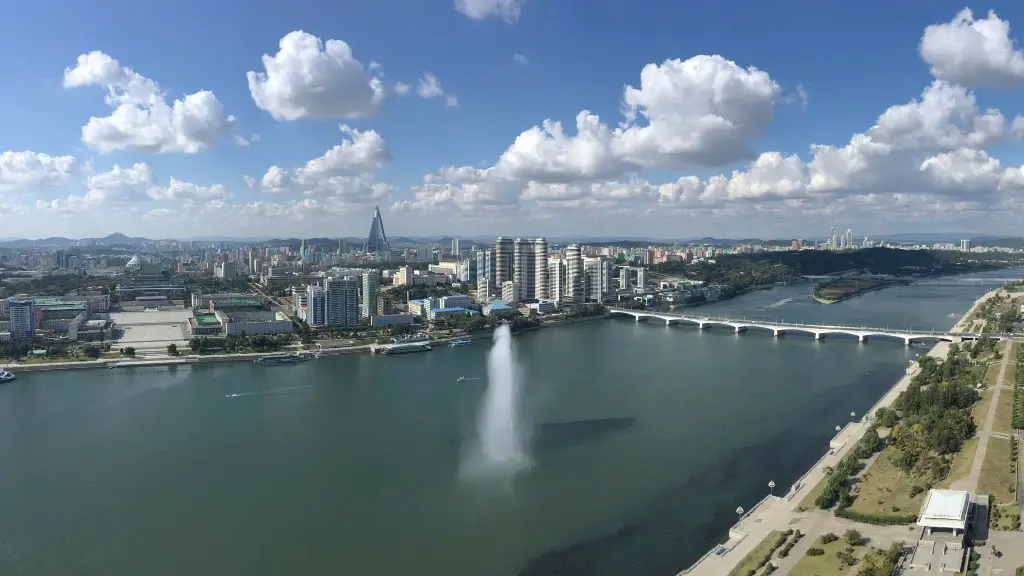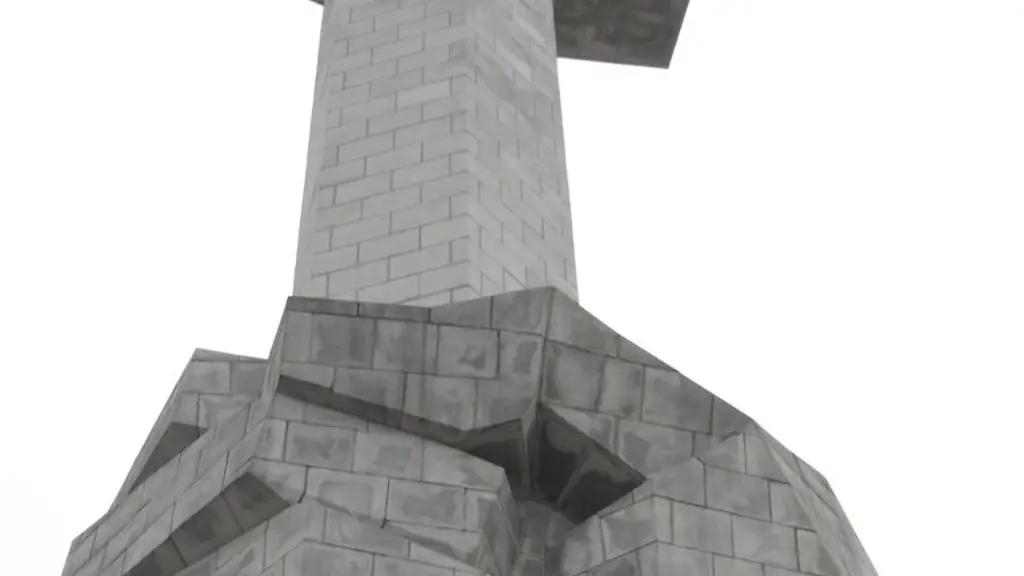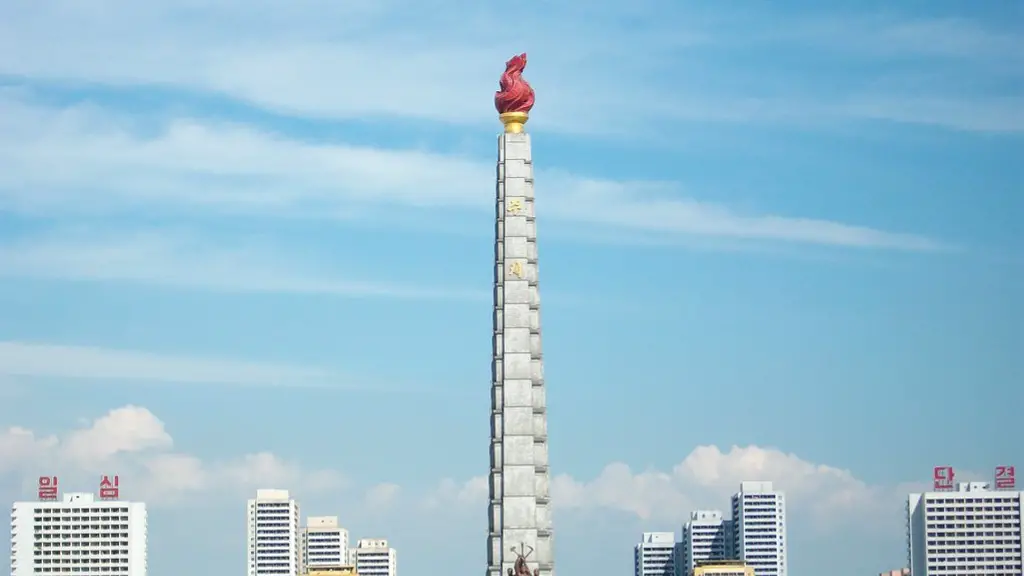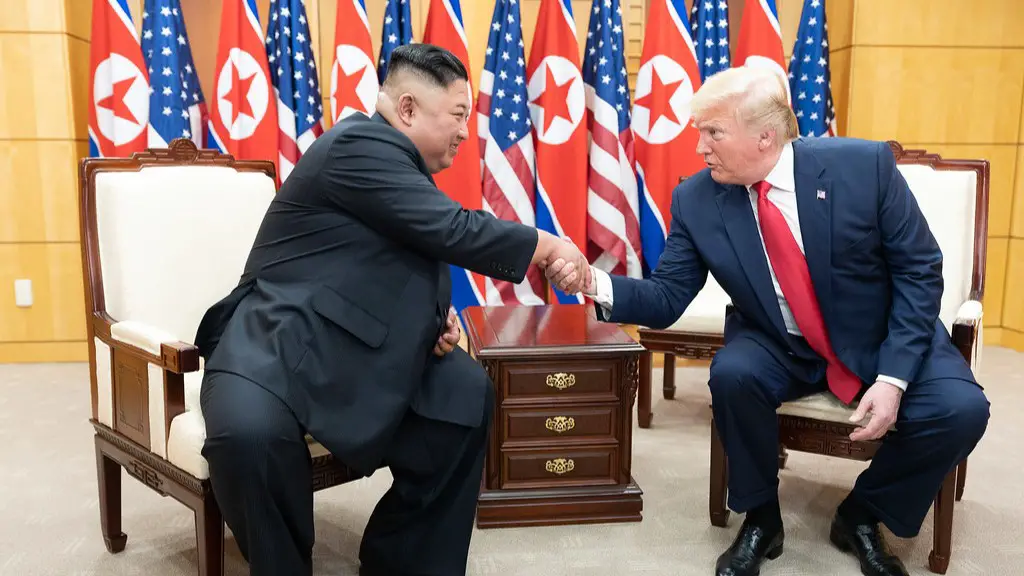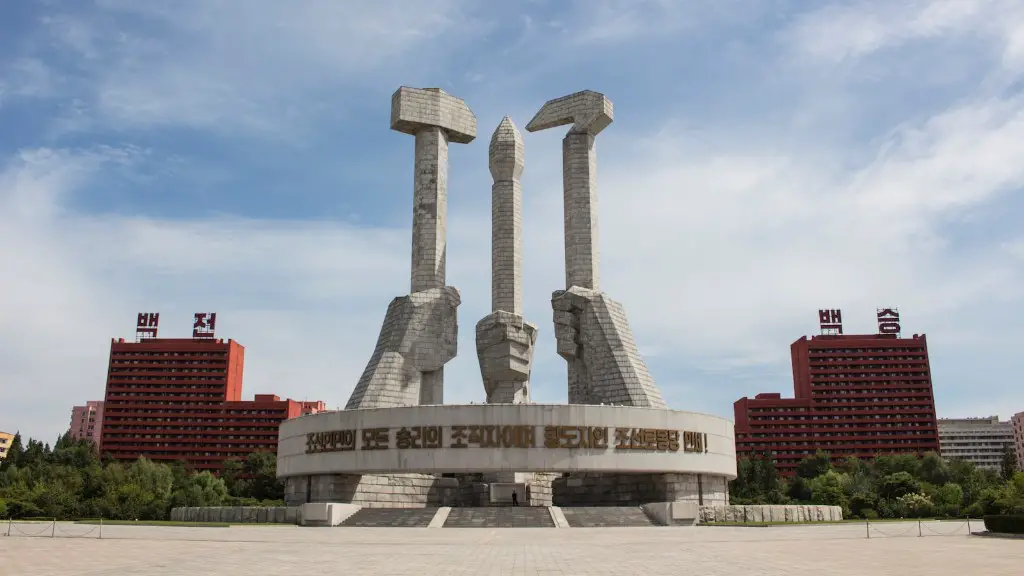North Korea is one of the world’s most secretive and mysterious countries. It has been ruled since its foundation in 1948 by the Korean Worker’s Party (KWP), led by the Kim family. North Korea operates a type of government known as a ‘one-party socialist republic’ which is tightly controlled by the government, with stringent laws and censorship.
North Korean citizens are subject to a range of restrictions and controls, including strictly controlled freedom of speech and movement, and limited access to news and information. The government also imposes harsh punishments for anyone perceived to be in opposition, including the death penalty. This has earned North Korea a reputation of being one of the world’s most oppressive governments.
North Korea is one of only a handful of countries to officially describe itself as a ‘sovereign socialist state’. This type of government advocates the control of economic resources and social structures by the state, to improve the economic and social welfare of its citizens. In theory, all businesses and resources are owned by the government and its citizens have equal say in the running of the country. However, in practice, the North Korean government controls all aspects of society and individual freedom is limited.
North Korea is a strictly authoritarian state and has been ranked as one of the least free countries in the world. The government maintains a vast network of spies and informants to monitor citizens and discourage dissent. It is estimated that around 200,000 people are held in political prisons where they are subject to torture, forced labour and other human rights abuses. The government is also believed to be responsible for numerous human rights violations, including restrictions on religious freedom, media censorship and the use of forced labour.
North Korea’s economy is heavily regulated and isolated from the outside world. Its state-run media is tightly censored and news of the outside world is heavily filtered. The government controls nearly all aspects of the economy, with a focus on heavy industry and military production. The country relies heavily on foreign aid and assistance, most notably from China.
North Korea’s government has been heavily criticised by human rights organisations and the international community for its oppressive tactics and disregard for universal human rights. While the government has committed to reforms in recent years, the situation for its citizens remains dire. North Korea is one of the most oppressive and closed regimes in the world and its citizens face severe restrictions and punishments if they dissent against the state.
Impact of Propaganda
The North Korean government employs a pervasive system of propaganda to control its citizens and maintain power. It has been argued that the government’s strong focus on creating a cult-like reverence for the state and its leader is one of the main reasons for its oppressive nature. This has been reinforced through decades of indoctrination in the school system, tightly controlled media and a severe suppression of any form of dissent or criticism.
North Korea’s propaganda is highly effective, as it cultivates a sense of fear and obedience in its citizens. Through its control of the media, the government is able to control the narrative and manipulate public opinion to suit its own agenda. The government also employs tactics such as the ‘cult of personality’, where the leader is revered as a figure of ultimate authority, to ensure its citizens remain loyal and obedient to the state.
The effects of the North Korean government’s propaganda system can be seen in its citizens’ attitudes towards the state. Despite the immense suffering imposed by the regime, citizens still show unwavering loyalty and devotion to their leaders, creating an environment of fear and conformity. This has been demonstrated in the government’s control over almost every aspects of its citizens’ lives, including voting, education, employment and leisure activities.
The North Korean government’s propaganda is one of the key factors in its oppressive nature, and it is clear that the government has been successful in controlling its citizens and maintaining its power. However, the long-term effects of this propaganda system remain to be seen, as more of the population slowly become exposed to external information and ideas.
Impact of Sanctions
In response to North Korea’s continued development of nuclear weapons and persistent human rights abuses, the UN Security Council has imposed comprehensive sanctions against the country. These sanctions, which include an embargo on trade, financial and military links with North Korea, have had a major impact on the country’s economy and its citizens’ wellbeing.
The sanctions have caused a dramatic decline in the North Korean economy, with a significant reduction in exports, investment and foreign aid. This has led to a decrease in public expenditure, resulting in a lack of access to basic goods and services, a drop in living standards, and a severe decline in the quality of healthcare and education.
The North Korean government has also been subject to financial sanctions, with banks being subject to bans and asset freezes. This has led to a decline in international business opportunities, as few foreign companies are willing to do business with North Korea in fear of being subject to financial penalties. This has resulted in a further decline in the economy and reduced access to much-needed foreign investment and aid.
The sanctions have had a devastating effect on North Korea’s economy and its citizens’ wellbeing. It is estimated that over 40% of the population is living in poverty and many suffer from a lack of access to basic goods and services. There is an increasing reliance on unregulated private markets to obtain essential goods, which has further exacerbated the economic decline.
The sanctions have been widely criticised for their ineffectiveness, as North Korea has refused to give up its nuclear weapons. Critics also argue that the sanctions have had a disproportionate effect on the citizens, as the government has been able to insulate itself from the worst of the sanctions while its citizens suffer the most.
Effects on Society
North Korea’s oppressive government and strict sanctions have had a major impact on its society and its citizens’ way of life. The government’s tight control over the media and its citizens’ access to information has resulted in a lack of education and a scarcity of news from the outside world. This has led to a general sense of apathy and mistrust of outsiders among the population.
Censorship and the restrictions on freedom of speech and movement have also had a significant impact on society. The fear of being punished for dissent or criticism leads many North Koreans to self-censor, as they feel unable to express their true feelings and thoughts. This has led to a culture of fear and intolerance, where dissent and independent thought are not tolerated.
The sanctions have added to the societal issues faced by North Koreans, with a lack of access to essential goods and services leading to increasing poverty and inequality. This has been compounded by the government’s refusal to acknowledge the effects of the sanctions, leading to a sense of helplessness among the population.
The oppressive government, strict sanctions, and lack of access to resources have had a major impact on North Korean society. This has led to a general sense of mistrust, apathy and fear among its citizens, creating an environment of inequality and intolerance. The effects of these societal issues can be seen in the daily lives of North Koreans, who face a constant struggle to access basic resources and maintain their quality of life.
Possible Solutions
Since North Korea’s government has continued to resist international pressure and maintains its oppressive policies, finding an effective solution to its human rights issues has proven difficult. Human rights organisations have called for the lifting of sanctions and an end to the repressive regime, while other organisations have suggested diplomatic solutions to try and open up dialogue between North Korea and the international community.
The international community has also voiced support for grassroots initiatives in North Korea such as freedom of information campaigns and educational programmes. These programmes are aimed at increasing citizens’ access to information and facilitating discussion on government policies and their effects on society. Advancing citizen rights, creating economic opportunities and providing access to essential goods and services are also seen as important steps in improving the conditions for North Koreans.
In order to address the human rights issues in North Korea, it is important for the international community to take a more holistic approach. This would involve engaging in diplomatic discussions, increasing aid and assistance, and providing technical and financial resources to facilitate reform. A combination of initiatives from both the international community and North Korea is essential for any meaningful change to take place.
The oppressive government of North Korea has had a profound impact on its citizens’ lives and way of life. The international community must work together to formulate effective and sustainable solutions to the human rights issues faced by North Korea and its citizens. Only then can a brighter future be achieved for the people of North Korea.
